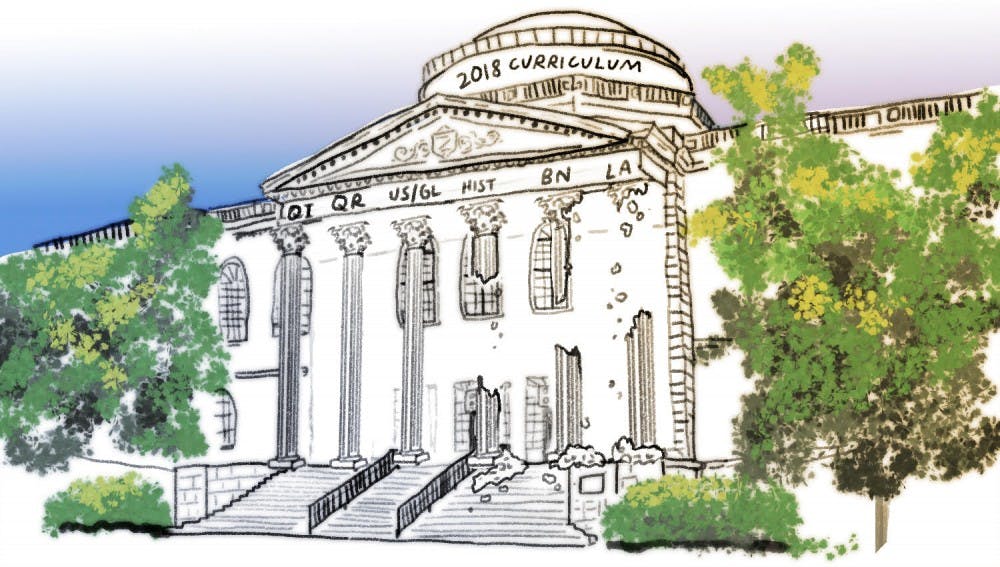Correction: In the original version of this story, Jacob Blount said students coming from rural high schools do not have the same resources as students coming from an IB (International Baccalaureate) or boarding school program; he was wrongly quoted as “students coming from an Ivy League or boarding school program.” The Daily Tar Heel apologizes for this error.
With a potential overhaul of UNC's General Education curriculum looming, debate concerning the outlined changes has sparked backlash from faculty members.
The Coordinating Committee is a group of eight subcommittees appointed in 2016 by Kevin Guskiewicz, dean of the College of Arts and Sciences.The subcommittees' research resulted in the first draft of the new curriculum proposal, which became public on Sept. 18. The committee aims to implement the plan by 2019.
Andrew Perrin, chair of the committee, said he believes the current curriculum has some significant weaknesses, having not been reexamined in over 15 years. He said that changes in the world and among students in that time make the curriculum reevaluation reasonable.
“We want students to have the capacity to approach questions in a careful, disciplined, analytic way and take those questions and make good judgments with them and apply those judgments out in the real world to do a good job,” Perrin said.
Perrin said the committee’s goals for the plan include academically diverse Foundations for first-year students, and collaboration and communication with alumni and faculty. The committee also wants to make the curriculum more navigable for students in general.
The first draft of the plan requires three courses from three separate categories: Humanities/Fine Arts, Social Sciences and Natural Sciences/Mathematics. These credits cannot be fulfilled through Advanced Placement or similar credits before a student’s first semester at the University.
The proposal requires students to take at least one course meeting four separate "focuses": U.S./Global Diversity, Ethical Reasoning, Mathematical/Quantitative Reasoning and Research Intensive. A new category of classes, MFIT, will join the LFIT requirement and focus on the mental wellness aspect of health. In addition, varsity athletes will now be exempt from required LFIT courses.
But these changes have not come uncontested.




